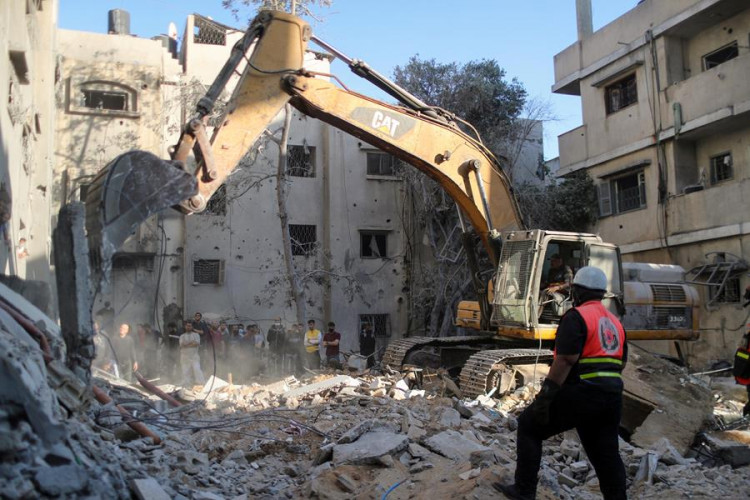The United States has indicated its intention to veto a United Nations Security Council resolution calling for an immediate ceasefire in the Gaza Strip. This stance comes amid escalating violence that has seen Israeli airstrikes cause significant casualties and destruction in various parts of Gaza, including Rafah, Khan Younis, and Gaza City.
The draft resolution, put forward by Algeria, aims to address the urgent need for a humanitarian ceasefire and to condemn the forced displacement of Palestinian civilians. Despite the dire situation, the U.S. contends that the resolution could undermine ongoing negotiations aimed at ending the hostilities, which have intensified since the conflict erupted following Hamas's attack on southern Israel on October 7.
U.S. Ambassador to the UN, Linda Thomas-Greenfield, articulated Washington's position, emphasizing the critical nature of supporting the negotiation process. "The United States does not support action on this draft resolution. Should it come up for a vote as drafted, it will not be adopted," Thomas-Greenfield stated, highlighting the importance of not jeopardizing the prospects for a lasting resolution to the conflict.
The latest Israeli military operations have led to widespread devastation, with airstrikes targeting Rafah resulting in the deaths of at least six individuals, including a woman and three children. In Khan Younis, five more lives were claimed by the offensive, while in Gaza City, an airstrike obliterated a family home, killing seven people.
Amidst this backdrop of violence, Israeli Prime Minister Benjamin Netanyahu has reaffirmed his government's stance, explicitly rejecting any international efforts to impose a Palestinian state or to halt Israel's military actions in Gaza. Netanyahu's cabinet adopted a declaration asserting Israel's sovereignty in determining its course of action regarding the Palestinians, framing unilateral recognition of a Palestinian state as a concession to terrorism.
The international community remains divided on the issue, with some leaders advocating for a ceasefire and a two-state solution, while others, like Netanyahu, insist on a military victory over Hamas as a precondition for peace. The French and Egyptian leaders, in a joint statement, expressed their opposition to an Israeli offensive in Rafah and the potential humanitarian implications, urging a return to the political process to achieve a two-state solution.
On the ground, the humanitarian situation continues to deteriorate, with the World Health Organization reporting that the Nasser Hospital in Khan Younis is no longer functional, exacerbating the already dire conditions faced by civilians. The ongoing airstrikes and military operations have displaced a significant portion of Gaza's population, with many seeking refuge in overcrowded and under-resourced facilities.
As the conflict enters its fourth month, the toll on human life and infrastructure in Gaza mounts, with the Gaza Health Ministry reporting over 28,000 casualties. The international community watches closely as diplomatic efforts to broker a ceasefire face significant hurdles, leaving the path to peace fraught with uncertainty.




